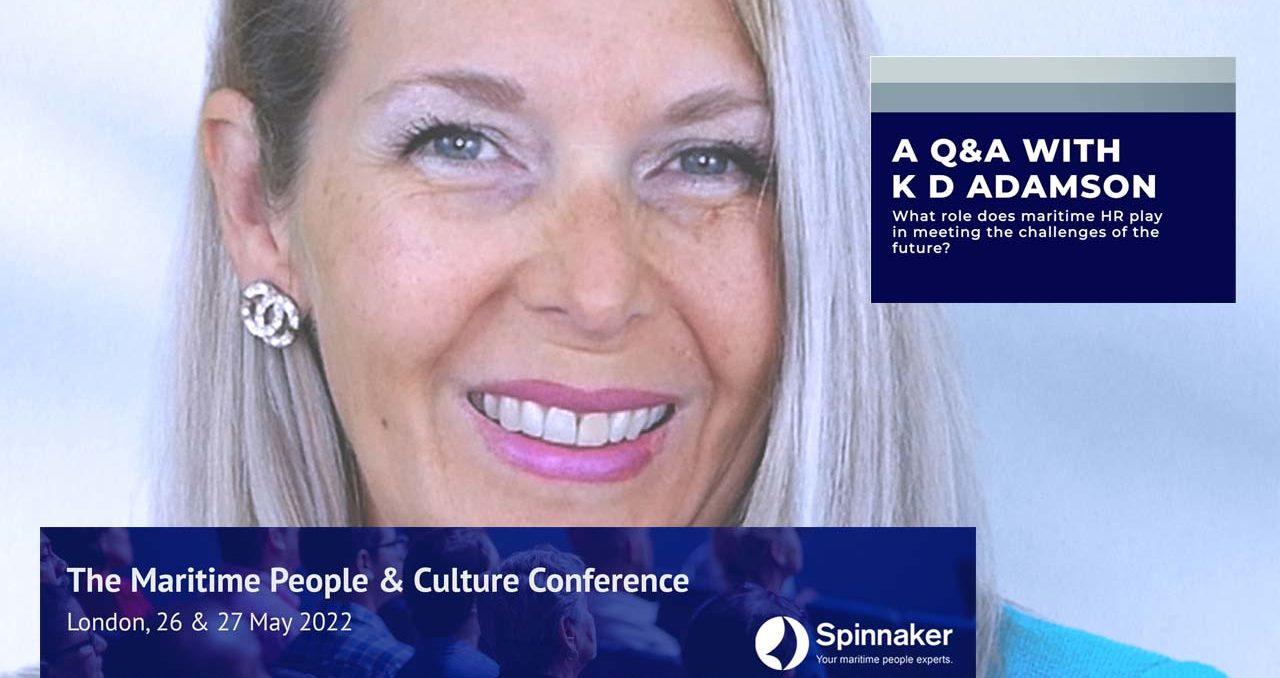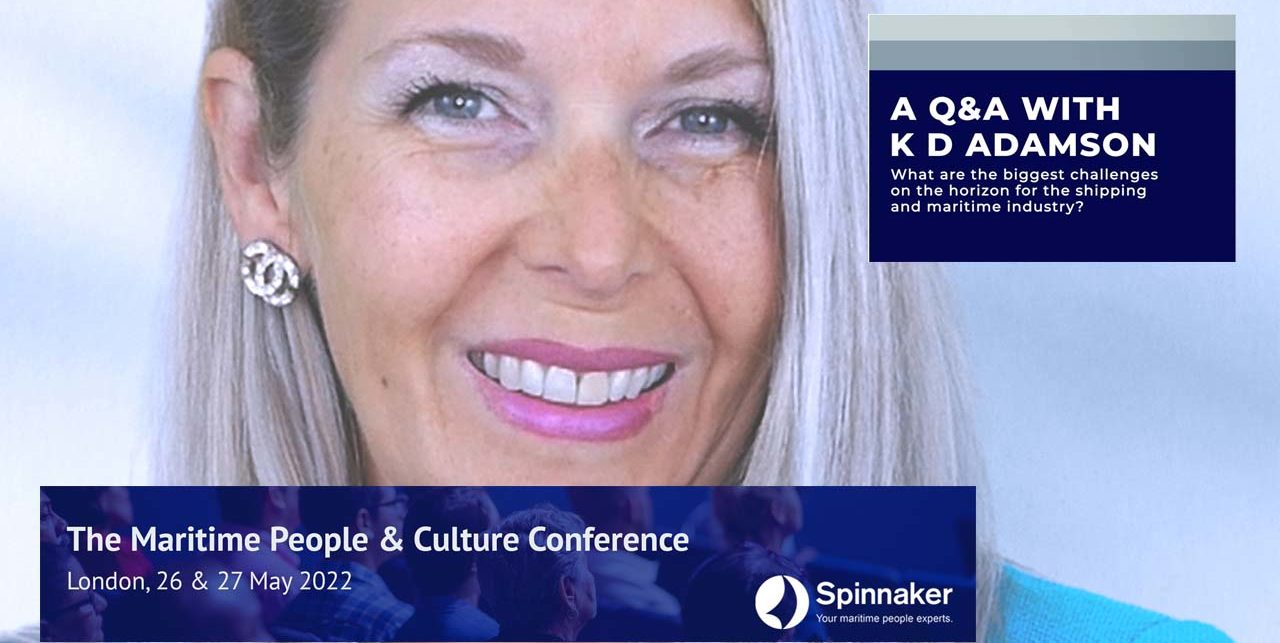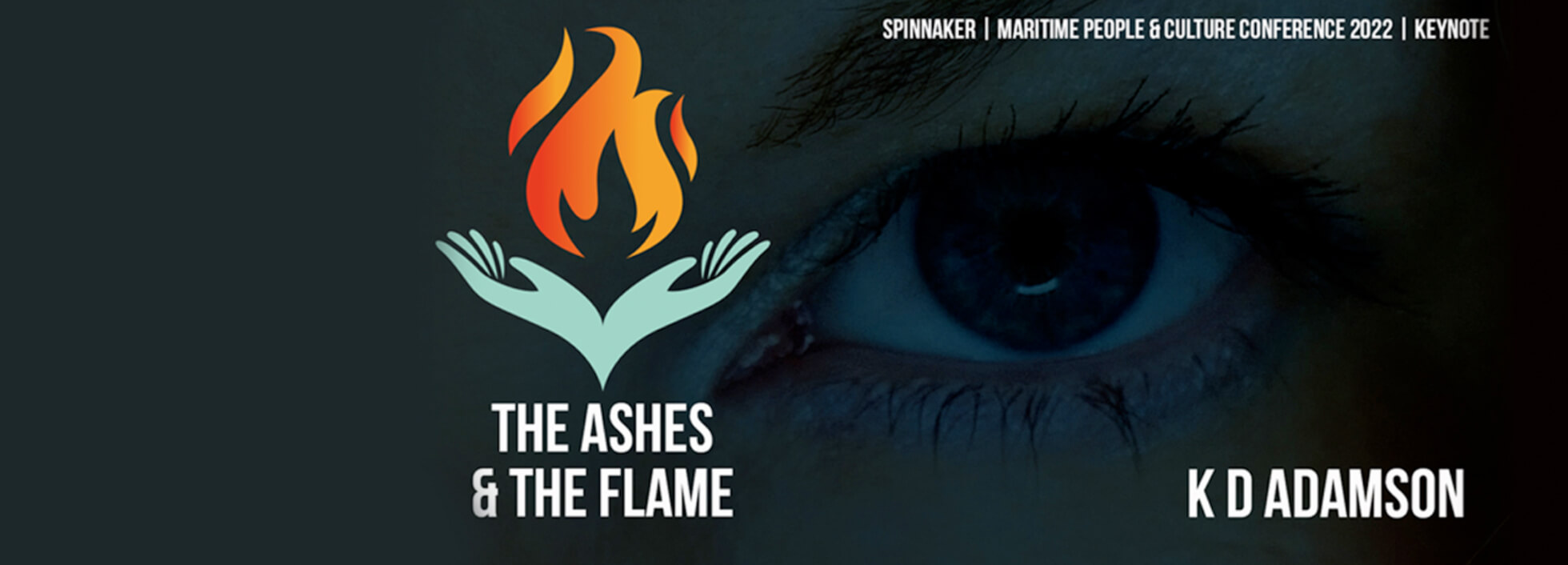Ahead of the 2022 Spinnaker Maritime People & Culture Conference we sat down with our keynote and special guest, shipping’s most famous futurist, K D Adamson.
One of the most sought-after futurist speakers globally K D Adamson’s keynotes have been likened to a TED talk on steroids.
With a stellar client list K D has advised organisations in multiple industries from the largest companies to start-ups, and is expert in ESG, agility, leadership, technology, digital and organisational transformation, and the Blue, Green and Circular Economies.
As the world’s foremost maritime futurist her client list spans the ocean industries, and she is renowned for combining visionary thinking, foresight and insight with sharp, straight-talking commercial and business acumen & expertise.
As futurist-in-residence at Futurenautics she works with ship owners, operators & managers, maritime suppliers, policymakers, regulators, technology companies, charities, class, NGOs, banks, VC, port and logistics groups.
In the second part of our conversation, we asked her about the role that she saw maritime HR playing in meeting future challenges?
K D Adamson: For a very long time business has been organised, or rather divided, into line and staff functions, and broadly speaking that translates as the functions that make money and the functions that spend it. HR along with IT, procurement, legal, technical, HSEQ etc. has been very much a staff function, basically just a cost centre. But just like IT has done over recent years, HR is transitioning to become a core driver of future business value creation. And that’s for a couple of reasons.
Firstly because the way that we measure value in companies is changing. Up until very recently the only metric which really mattered to a business and its stakeholders was profitability, but that calculation, how the value of a company is measured, is becoming far more complex and far more nuanced.
As ESG reporting really kicks in then a whole range of metrics which have traditionally been considered pretty unimportant and are often invisible, are suddenly becoming core to profitability. So whether that’s diversity, equality and inclusion, whether it’s executive pay, governance, the ability to attract and retain talent or the introduction of agile ways of working, all of these things are beginning to have a material impact on how profitable the company is. So in many respects HR has been thought of as an Ugly Sister, when in actual fact it’s Cinderella.
And Cinderella is a good metaphor because there’s another reason that HR is going to play a critical role going forward, which is probably even more profound. And that is that future sustainable growth and value creation will depend on successfully transforming the way our businesses operate, so we can capture that value.
Now we’ve heard a lot about digital transformation but the reason so many digital transformation initiatives failed was because of cultural issues. The ability of a company to transform – it’s Transformation Quotient as I describe it, its TQ – is determined by its culture. So underpinning successful innovation, decarbonisation, digitalisation, all of it, is people, culture and mindset.
Changing the culture and mindset is a massive challenge on its own, and HR is going to be indispensable in leading the way to wireframe new working practices, mechanisms, and processes that will support the culture and mindset in a practical way. That will operationalise the culture and really enable sustainable transformation.
Pulling that off is going to require a deep partnership between HR and C-suite leaders, but it’s key. Because adopting new technology will never give you a sustained competitive advantage, because someone else can always buy it too. Whereas a holistic transformation of a company’s core and culture, is a sustainable transformation. It is a source of sustainable competitive advantage that will continue to deliver you returns.
You can watch the video to accompany this interview with K D Adamson by following this link
The conference takes place on Thursday 26th & Friday 27th May in the City of London, so follow this link now to view the full agenda and book tickets.



